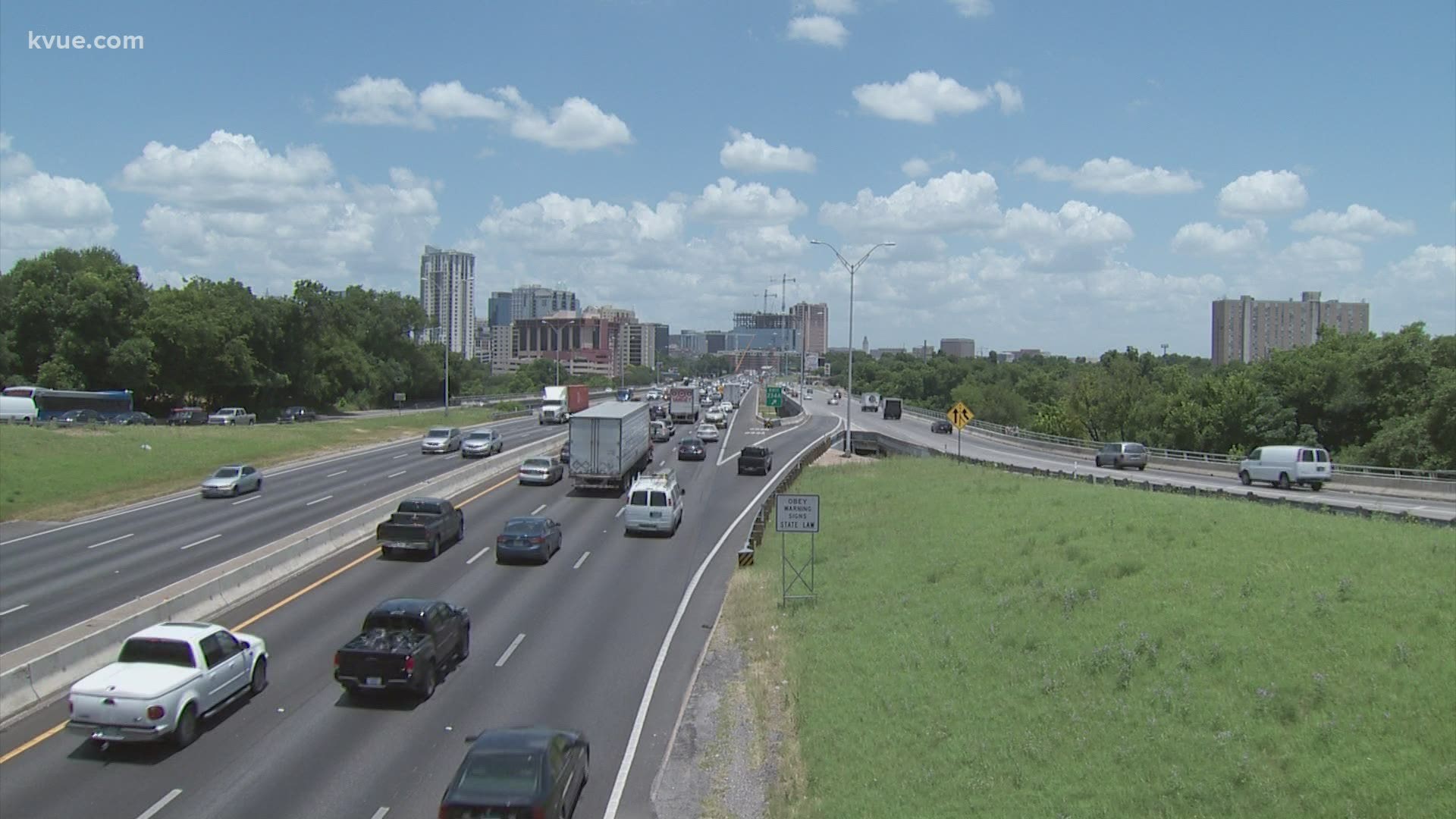AUSTIN, Texas — Editor's note: Prop A, a $7.1 billion Project Connect plan, and Prop B passed in the November election. To read more on what that means for Austinites, click here.
This November, Austin residents will have the option to vote for candidates in a variety of national, State and local races. But elected positions aren’t the only thing on the ballot. Voters will also consider two City of Austin propositions.
Both Propositions A and B focus on transportation and mobility, but the two are quite different. Let’s break down what a "yes" vote for each would do.
Voting for Proposition A would approve the City’s property tax rate and dedicate 8.75 cents of the operations and maintenance portion of the tax rate for Project Connect, Capital Metro’s $7.1 billion public transit plan. Approving the proposition would ensure that the initial investment of Project Connect is completed, according to the City.
The City is expecting to receive federal funding for approximately 45% of the project’s total cost. Capital Metro will also allocate its Capital Expansion Fund to the project.
If Proposition A is passed, the property tax revenue would provide the rest plus operations and maintenance of the transit system once it is built, according to the City. Also included in the initial investment is $300 million for anti-displacement housing strategies.
If approved by voters, the dedicated property tax revenue, along with CapMetro revenue and the anticipated federal funding, would be directed to a new independent government organization called the Austin Transit Partnership. That organization would oversee, finance and implement Project Connect.
According to the City, the estimated tax bill impact of the passage of Proposition A is an approximation-based Fiscal Year 2020/2021 property tax rate, so it reflects assumptions about market and economic conditions that may be subject to change. The anticipated annual tax bill impact is based on taxable home value, which is the appraised value of a home after property tax exemptions have been applied. Take a look at the City’s math.
KVUE also did an analysis of our own of how much an Austin taxpayer’s property tax rate is expected to change, whether Proposition A passes or not. Here’s how the math works out.
Voting for Proposition B would approve $460 million in property tax-supported general obligation bonds for transportation infrastructure like sidewalks, bikeways, urban trails, safe routes to schools, substandard streets and transportation safety projects such as Vision Zero.
If Proposition B is passed, it will allocate:
- $102 million for Major Capital Improvements, including Longhorn Dam Bridge improvements, the Congress Avenue Urban Design Initiative, the creation of a preliminary engineering report for Barton Springs Road, South Pleasant Valley corridor improvements and up to $5 million to build additional pedestrian infrastructure as part of the 2016 Mobility Bond Corridor Mobility Programs
- $80 million for sidewalks, including $50 million for approximately 78 miles of new sidewalks and $30 million for the rehabilitation of existing sidewalks
- $80 million for transportation-related urban trails
- $65 million for safety/Vision Zero funding, addressing intersection reconstruction projects at 25 major intersections, system-wide pedestrian crossing projects, speed mitigation projects at approximately 70 street segments and a variety of rapid response projects on the High-Injury Network
- $53 million for substandard streets including improvements to Johnny Morris Road and Ross Road as well as others if funding remains
- $40 million for transportation-related bikeways
- $20 million for safe routes to schools
- $19 million to the local Transit Enhancement Program, including projects not delivered by Project Connect
- $1 million to the Neighborhood Partnering Program, including active transportation mobility projects built through community-led partnerships
If Proposition B passes and the bonds and notes are issued, it would increase the debt service tax rate portion of the City’s tax rate in future years, according to the City. The 2020/2021 Fiscal Year debt service tax rate wouldn’t be impacted.
Under current assumptions, the City anticipates that once issued, Proposition B would require a two-cent increase to the debt service tax rate. The tax rate increase would be phased in over a few years, and the full two-cent and tax bill increase would not be fully levied until 2026.
The estimated tax bill impact of passing Proposition B is an approximation based on the Fiscal Year 2020/2021 property tax rate, as well as assumptions about market and economic conditions that could change. The anticipated annual tax bill impact is based on taxable home value.
According to the City, if Proposition B is approved and you own a home with a median value of:
- $250,000, you could expect a monthly impact of $4.17 and an annual impact of $50 by 2026
- $325,000 you could expect a monthly impact of $5.42 and an annual impact of $65 by 2026
- $500,000 you could expect a monthly impact of $8.33 and an annual impact of $100 by 2026
- $750,000 you could expect a monthly impact of $12.50 and an annual impact of $150 by 2026
The campaign manager for Proposition B believes the two propositions complement each other.
"Propositions A and B go hand-in-hand in promising to transform mobility in Austin. Prop B would provide historic levels of funding for the sidewalks, bikeways and street infrastructure needed to get people safely to and from the new public transportation funded by Prop A," Adam Greenfield said. "Austinites have a history of voting for multiple ballot items like Props A and B and with recent research showing that 55% of Austinites would prefer to get around in a way other than driving alone, the evidence is strong for a public 'yes' vote for both Propositions A and B this November."
Texans have until Oct. 5 to register to vote. Early voting runs from Tuesday, Oct. 13 through Friday, Oct. 30. Election Day is Nov. 3.
For more on the races you may see on your ballot, check out the KVUE voter guide.
PEOPLE ARE ALSO READING:

